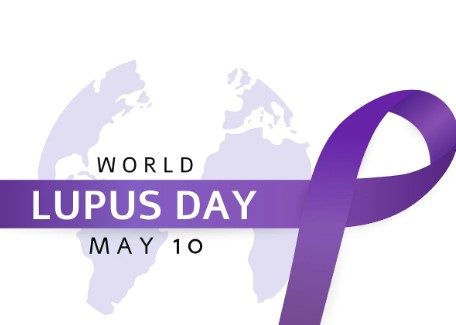Context:
World Lupus Day is observed annually on May 10th by the World Lupus Federation (WLF).
Historical background
- The Day was first observed in 2004 by the World Lupus Federation (WLF) to spread awareness about the disease and educate people about lupus.
World Lupus Federation (WLF)
- It is a global alliance of lupus patient organizations.
- Their mission is to unite lupus patient organizations and advocate for improved quality of life for all those affected by lupus.
About Lupus Disease
- Lupus is a chronic autoimmune disease that causes your immune system to attack your own tissues and organs.
- It can damage any part of the body (skin, joints, or internal organs).
- Chronic disease means that the signs and symptoms tend to last longer than six weeks and often become a lifelong condition.
- Lupus got its name from the Latin word which means wolf, to describe facial lesions that looked like a wolf’s bite.
Symptoms of Lupus:

- Joint pain
- Headaches
- Mouth sores
- Confusion
- Rashes
- Fever
- Fatigue
- Swollen glands
- Blood clots (and more)
Complications:
- Lupus inflammation can affect joints, skin, kidneys, blood cells, brain, heart and lungs.
Demographics:
- Diagnosis: Typically occurs between the ages of 15 to 44 and lasts for the rest of the person’s life.
- Gender Disparity: It is more common in women and almost 90% of those suffering from the disease are females, while only 10% of men get diagnosed with it.
- Global Prevalence: Nearly 5 million people globally experience lupus, with 1.5 million of them living in the US alone.
Types of lupus
- Systemic lupus erythematosus (SLE): It affects the internal organs and is the most serious type.
- Drug-induced lupus: Caused by certain medications triggering an immune system overreaction.
- Lupus dermatitis: Primarily affects the skin in the form of a rash.
- Neonatal lupus: A rare condition in infants where maternal antibodies passively acquired during pregnancy attack the baby’s tissues.

